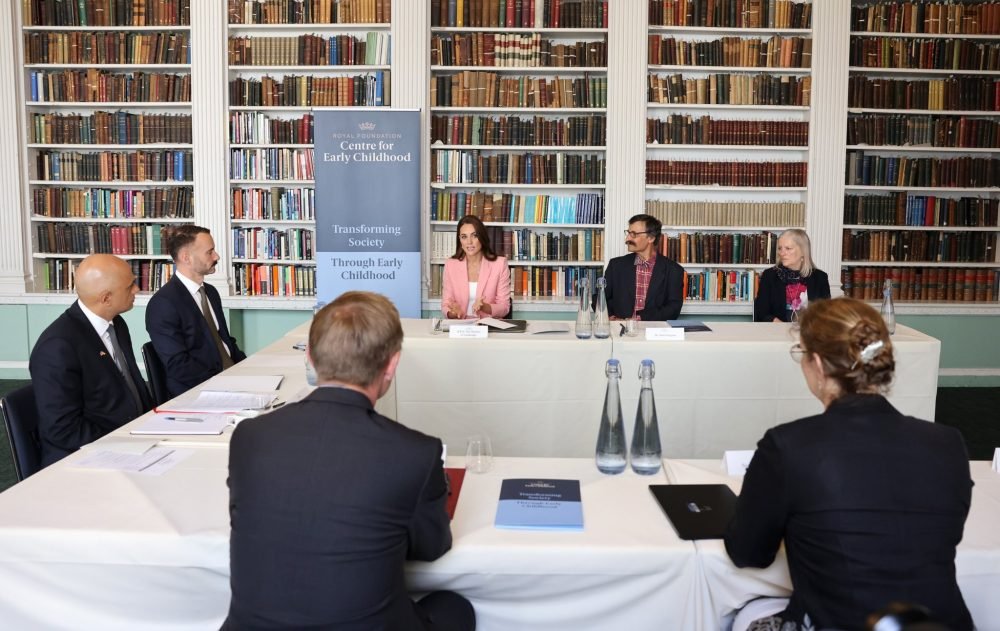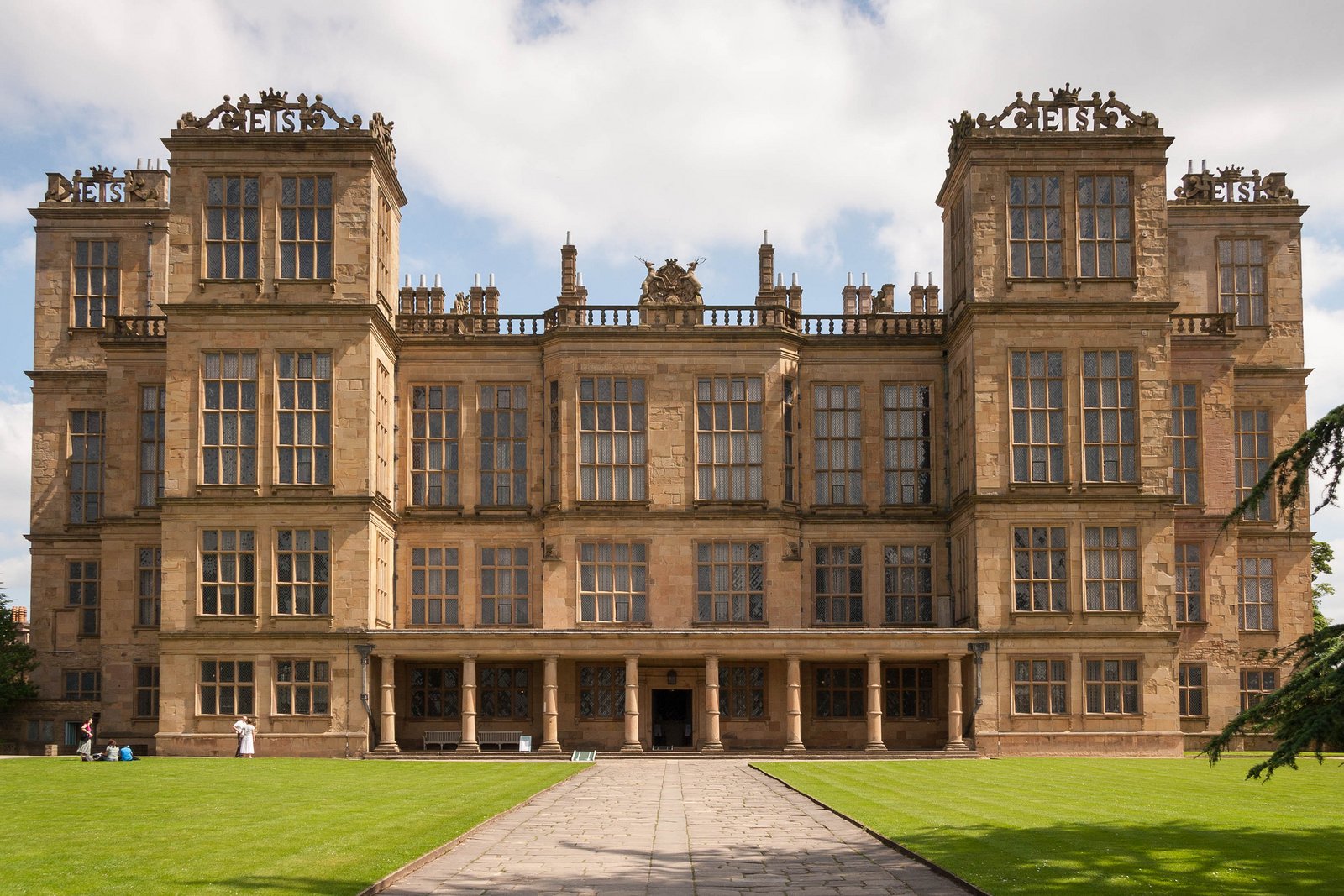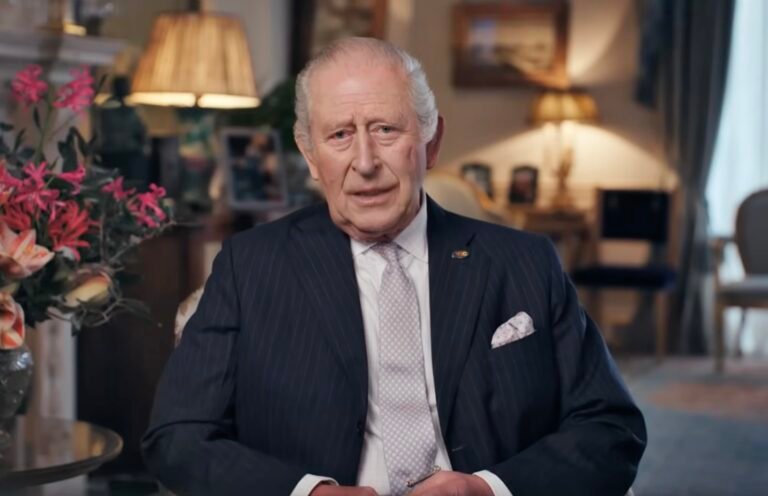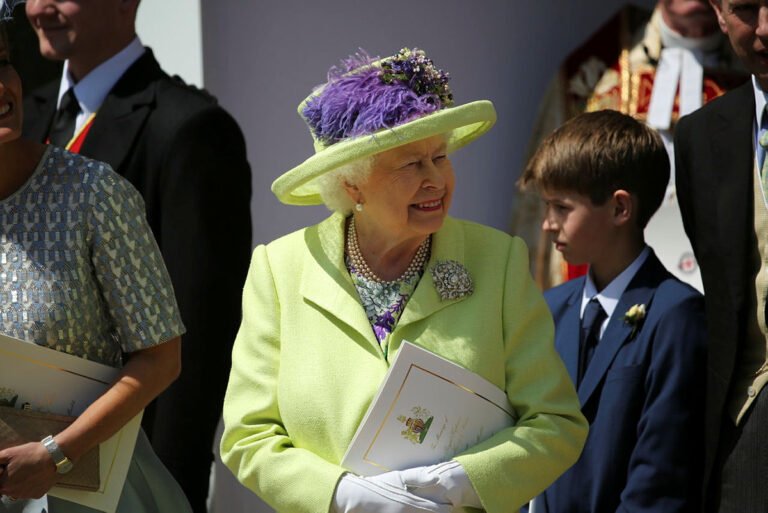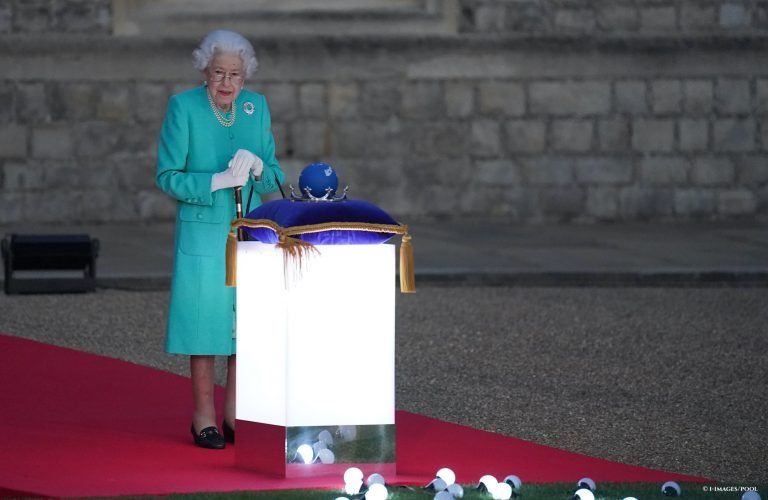On the first anniversary since the opening of The Royal Foundation Centre For Early Childhood, The Duchess of Cambridge continued to shine a spotlight on her early years work, by hosting her first political roundtable event.
Catherine was joined by representatives from the early years sector and the British government for the event at the Royal Institution.
The roundtable discussed new research from her Centre For Early Childhood, whose research follows on from The Duchess of Cambridge’s survey in 2020, entitled ‘5 Big Questions on the Under Fives’.

Giving the opening remarks, The Duchess of Cambridge said: “It is a year since we launched The Royal Foundation Centre for Early Childhood and the reasons for the centre’s launch was twofold: it was not only to help improve the early childhood outcomes but it’s also about prevention of some of today’s toughest social challenges such as homelessness, crime and addiction. All of which often have poor mental health at the heart.
“So if you really want to try and prevent these challenges later in life address the growing rate of poor mental health, thrive as individuals and build a happier healthier more nurturing our priority really does need to be in the first five years, from conception all the way up to year five.”

Based on a survey of 4,682 adults and 1,114 interviews with parents of children up to the age of five, the research aims to understand public perceptions of early childhood, focusing on three key areas: the prioritisation of the early years, the link between the first five years of life and lifelong outcomes for mental health and wellbeing, and the support parents seek when raising young children.
The key insights from the research have shown:
-
- – 9 in 10 agree the early years are important in shaping a person’s future life, but less than a fifth recognise the unique importance of the 0-5 period
- – 7 in 10 think the early years should be more of a priority for society
- – Over half (55%) of the public recognise a person’s future mental health and wellbeing is the most likely part of adult life to be affected by their development in the early years, followed by their ability to make and maintain relationships (51%) and their future happiness (40%)
- – Community support networks found to be a crucial for parents
- – Parents are more likely to seek out information and advice on key aspects of their child’s physical wellbeing (for example 35% on nutrition, 34% vaccinations, 33% on health} than they are on their social (21%} and emotional development (23%)
Discussing the findings, Catherine said: “Our experiences in early childhood fundamentally impact our whole life and set the foundation for how we go on to thrive as individuals, with one another, as a community and as a society. The findings published today present us with a huge opportunity and demonstrate there is real appetite from the public to bring this issue up all of our agendas.
Following the release of our latest public research, The Duchess of Cambridge today met with ministers @sajidjavid @willquince along with early years sector experts and civil servants to discuss how we can transform society by focusing on #EarlyChildhood https://t.co/X2qqr3xIYK pic.twitter.com/pJCxvIqjmG
— The Royal Foundation Centre for Early Childhood (@Earlychildhood) June 16, 2022
“There is more we can all do – every member of society can play a key role, whether that is directly with a child or by investing in the adults around them – the parents, the carers, the early years workforce and more.”
She added: “If we come together to raise the importance of early childhood development, we’ll soon see that healthy, happy individuals make for a healthier, happier world. Which is why every second we spend with a child is an investment in our collective future.”
In the last decade, The Duchess of Cambridge has seen first-hand how some of the largest social challenges have impacted society and how it can be traced back to the earliest years of a persons life. Catherine recently visited Denmark, where she saw more about the country’s approach to Early Years and how these world-leading systems might be applied to the UK.

